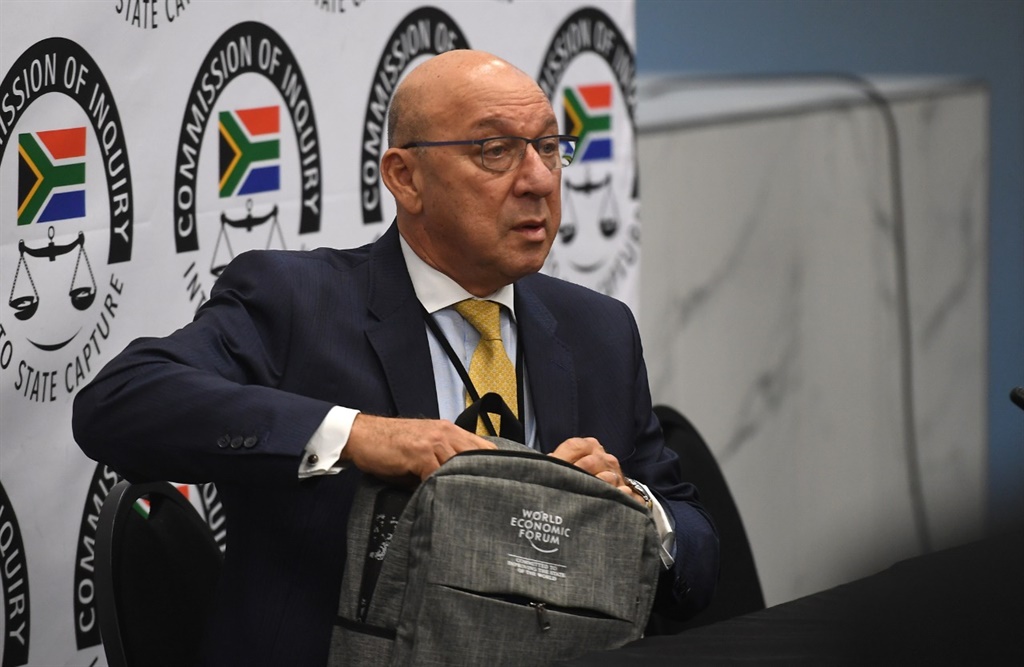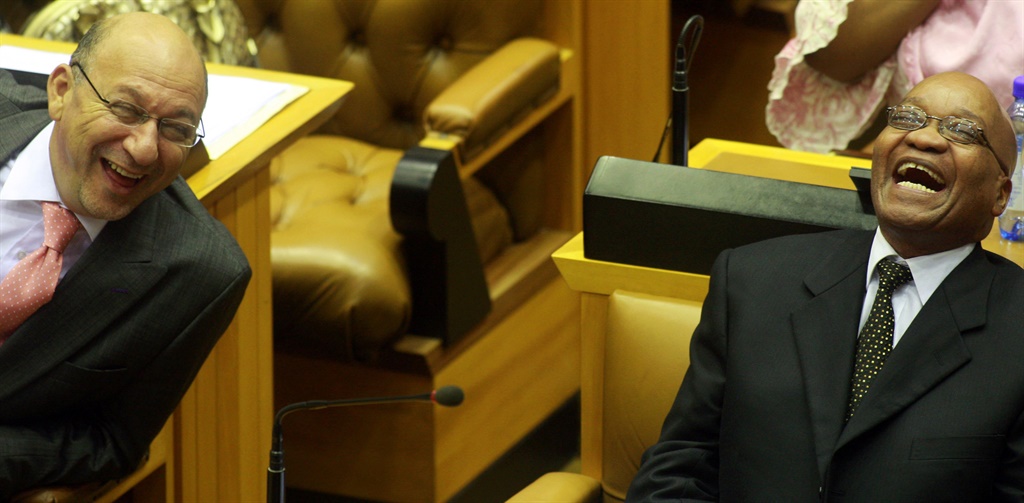
"On the one hand it speaks to the abdication of power, and on the other hand to the very public expression of power." – Trevor Manuel on former president Jacob Zuma’s relationship with the Gupta family, and the Gupta family's abuse of the relationship.
Trevor Manuel on Thursday used rhetoric that became extinct in the executive of former president Jacob Zuma and used language that has largely disappeared from public service since.
In his testimony to the judicial commission of inquiry into allegations of state capture, headed by Deputy Chief Justice Ray Zondo, the former minister of finance spoke about being faithful to the Constitution, about the oath of office sworn to by the president and public representatives, about "necessary care and attention to detail" when managing public finances and about confidentiality when appointing a minister.
He told Zondo about the culture and norms established by former president Nelson Mandela, and how those conventions continued to become entrenched in the democratic dispensation under the presidency of Thabo Mbeki.
And he explained, in detail and with his customary wit and precision, how it was eroded, ignored and finally discarded by Zuma.
At the core of what he told Zondo, was that Zuma acted in "cavalier" fashion in matters of Cabinet and state and that he abdicated the responsibilities delegated to him by the Constitution and his oath of office to the Guptas, a rent-seeking family of great wealth who sought to use their influence and access to extract as much as they can from the public purse.
The evidence presented by Manuel, who served as finance minister between 1996 and 2009, and then in the first Zuma government as minister in the presidency responsible for the national planning commission, was limited in scope and was in relation chiefly to events at a meeting of the ANC's executive committee in August 2011.
Manuel told the commission how Fikile Mbalula, who was removed from Cabinet by President Cyril Ramaphosa, became emotional during a "tense discussion" about the influence that the Guptas started to exert on government and party.
Mbalula told the meeting how he was informed by the Guptas that he would be elevated to Cabinet, and that he felt slighted by being told of the news by people who had no business to do so.
Manuel told Zondo that Mbalula became emotional and cried because the his moment of achievement, a promotion to Cabinet, was hijacked by the Guptas.
By allowing the Guptas into the inner-most sanctuary of executive decision-making and by providing them with information that under presidents Mandela and Mbeki remained confidential and highly privileged, Zuma abdicated his responsibilities and ensured that the Guptas could "boast" about their access to the head of state, Manuel testified.
The former finance minister, credited with leading the team that first stabilised the national finances post-apartheid and then putting the economy on a steady growth path, was an uneasy participant in the post-Polokwane purge of the ANC, having opposed Zuma's election.
He was one of the first that had to be removed in terms of the dismantling of the so-called "1996 Class Project" but was persuaded to remain in Cabinet for the sake of stability and party unity.
Since leaving government, he as retreated from party matters and has found suitable employment in the private sector, serving on the boards of various companies who see the value of the insights that can be provided by one of the world's longest serving finance ministers.
In private he hasn't been afraid to voice his concerns, supporting the efforts in 2016 and 2017 to resist grand capture and the corruption of National Treasury.
His testimony and his statements were considered and devoid of emotion and drama, as it befits the finance minister of old.
Manuel is one of the last adherents of the Mandela doctrine, which puts responsible governance and the application of law at the centre of the task of state. The values imbued by Mandela were starting to gain traction under Mbeki - but Zuma was a deviant president.
When he was asked to serve as finance minister by Mandela, and requested to continue under Mbeki, he treated the matter with care and confidentiality.
But Zuma opted to invite the Guptas into Cabinet by sharing information with them before it could be communicated to prospective ministers. He spoke of the repurposing of the state, how the appointment of ministers such as Malusi Gigaba and Bathabile Dlamini "had a profound impact on norms and systems of governance".
He was evasive about when the ANC's leadership realised what was going on and didn't explain what actions were taken to prevent the Gupta problem from proliferating.
There was no doubt, given Manuel's testimony, that it was a talking point, however.
He told Zondo: "There was even banter [among members of the ANC's executive and national ministers] about who was a Gupta minister and who was not."
Manuel does not have a penchant for hyperbole. And even though he never raised his voice or used colour and descriptive language to make his point, his disdain for the project enabled by Zuma was clear.
He wants individuals involved in capture to go to prison, he said, and he will do whatever is necessary, Manuel told Zondo: "I would like Ajay Gupta to give up his hiding place in Dubai and come here and face the consequences."
Zondo asked Manuel what Zuma's reaction was during the August 2011 meeting of the NEC when Mbalula spoke of being called to Saxonwold and told of his imminent promotion.
Manuel, who knows how to do much with few words, paused and frowned before looking into the distance and turning to his questioner before saying: "I certainly don't recall any reaction…"
Abdicating his duties and cavalier with the Constitution. That's who Zuma was.




 Publications
Publications
 Partners
Partners

























